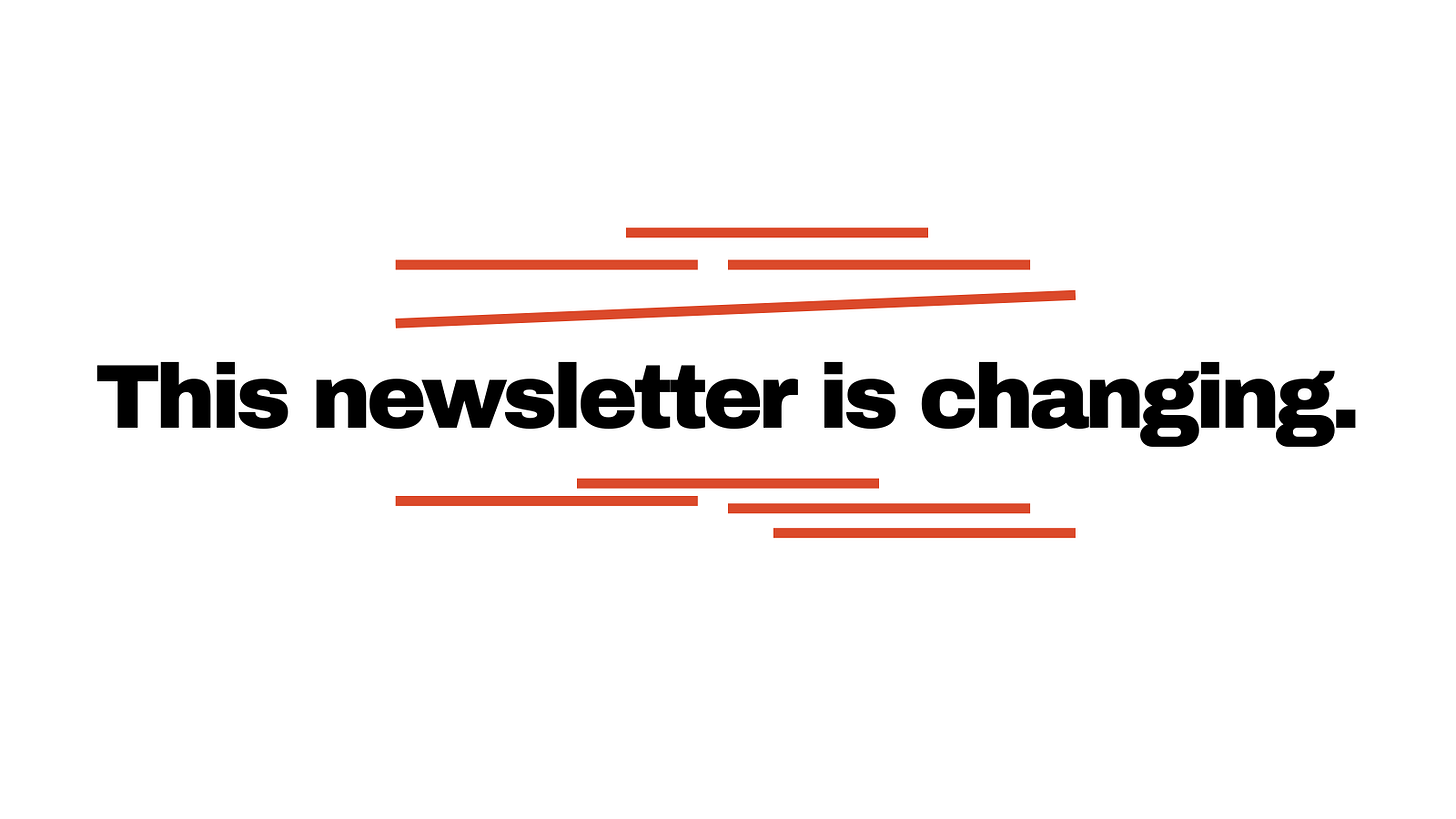This newsletter is changing
Here’s what’s next — and why I hope you’ll join me
Music was blaring, lights strobing, bodies gyrating. There was glitter everywhere. Welcome to Daybreaker, an early morning dance movement based in 33 cities around the world, where people come to “sweat, dance and connect with ourselves and each other”. It is also how I ended up in a nightclub at seven in the morning, sober and alone, approaching strangers to ask if they were having a good time.
I suppose I should consider myself lucky. My editor at the time had initially (and a little too cheerily, I felt) suggested I go walking with wolves somewhere in the Lake District. Back in 2019, Daybreaker was a noisy example of what seemed like a striking shift in our consumption habits. The so-called “experience economy” was booming then and — following the Covid-19 interruption — has come back with a vengeance.
From immersive art and communal dining to nature walks and ‘surprise’ film screenings, new and established brands are racing to deliver something memorable — and sell it on. Joseph Pine II and James Gilmore, who coined the term “experience economy”, use the humble birthday cake to illustrate the history of economic progress.
In the agrarian economy, parents baked cakes from scratch. With industrialisation came pre-made mixes. Then, in the service economy, they bought ready-made cakes for £10 or £15. Today, many outsource the entire party — often for hundreds of pounds — and the cake is thrown in for free.
“The history of economic progress,” Pine told me (and many others, I suspect, given the rhyme), “is paying a fee for what used to be free.”
Can you see where I’m going with this?
The pitch
After writing almost 1,000 editions of my West End Final newsletter, and 154 as Lines To Take — all free — I’m about to do something that feels significant and a little scary: I’m turning on payments.
Writing this newsletter each day is, by some distance, the most professionally rewarding thing I’ve done. It’s also a lot of work — thinking, researching, wondering how to squeeze in a reference to Tony Blair or fuel duty. To keep doing this, and to grow it into what I believe it can become, I need your support.
So starting today, I’m opening up a paid tier. If this newsletter has made you think, smile or even roll your eyes — and if you want to support thoughtful, independent writing, I’d love for you to consider becoming a paid subscriber.
What do you get?
Well, for starters, a special offer: 20% off a yearly or monthly subscription if you sign up in the first four weeks — meaning it will cost you less than £2 a week for five in-depth articles. If you’ve ever thought about supporting my work, now’s the best time.
And if you’re a bit of a superfan (Hi, Mom!) then please consider signing up as a Founding Member.
What stays free:
Free previews will still land in your inbox each weekday, in addition to one full article a week.
What paid subscribers get:
Unlike many newsletters that arrive once or twice a week, Lines To Take lands in your inbox five days a week — delivering fresh, in-depth writing every weekday. You’ll also get audio versions, the ability to comment, connect directly with me and the chance to genuinely help shape the future of the newsletter.
And finally
Look, if you only have time for one subscription in your life, please, make that a newspaper. For one thing, this newsletter would not exist without them. But many readers have so graciously told me they really value what Lines To Take offers: the voice, the humour, the rigour — and the range, from the history of the balance of payments to what it’s like to go horribly, horribly viral.
I have some exciting plans, but for now, here’s a selection of work I’m most proud of — and a taste of what you can expect:




Dear Jack
I want you to know that I have signed up as a
Founder Member.
P.S. I am paying you more than The Telegraph..
P.P.S. That is a compliment